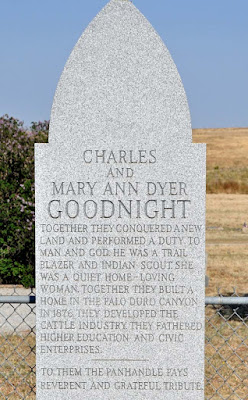 |
| Graves of Jerome & Felix Robertson |
In the old stately Oakwood Cemetery in Waco, Texas lie the remains of a father and son who both survived many fierce battles during the Civil War, rose through the ranks to become generals and returned from the war to become successful in civilian life. The son, Felix Huston Robertson, was the only native-born Texan to serve as a general during the Civil War and by the time he died, had earned a singularly notable accomplishment.
The father, Jerome Bonaparte Robertson, came to Texas from Kentucky to join the Texas army in 1836. He served as a captain until he resigned his position in 1837. After getting married, he purchased some land and settled at Washington-on-the-Brazos where he opened a medical practice. Over the next 6 years, he was often away fighting in Indian campaigns and serving in the army to repel two invasions by the Mexicans. He managed to come back home often enough for his wife to give birth to three children, one of whom died in infancy. After finally coming back home with the intention of settling down, he became the town's coroner, post master and eventually was elected mayor. In 1847 he was elected to the State House of Representatives and in 1849 to the State Senate.
 |
| Jerome Robertson |
After the war, in spite of all the death and gruesome things he had seen and was a part of, Jerome simply moved back home and picked up where he left off, reestablishing his medical practice and with his son, investing in railroads and real estate. He died peacefully in his bed in 1890 at age 74.
Felix Robertson was born in Texas on March 9, 1839. He attended Baylor University and then West Point, but quit and offered his services to the Confederacy. He was commissioned a 2nd lieutenant in the artillery and took part in the bombardment of Fort Sumter at the beginning of the Civil War. Felix served with distinction in numerous less well-known battles and several famous ones such as Shiloh and Murfreesboro. At Chickamauga, he was in heavy action near his father. Amazingly, both father and son survived 3 days of fierce fighting in which there were over 18,000 Confederate causalities.
 |
| Felix Robertson |
Other than surviving against the odds, what notable accomplishment did Felix achieve? Not content with just being the only native Texan to serve as a general in the Civil War, when he died in Waco, Texas on April 20, 1928, he was the last surviving general of the Confederacy.























